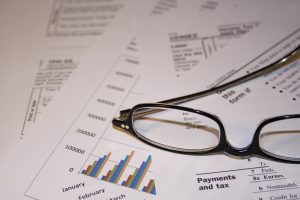 QuickBooks tracks the accounting records for your business. One of the main uses for accounting records is to determine taxes owed and to keep tax checks or records for a possible audit. However, there are certain situations where you may want to track the financial records of your business for operational reasons different than how you track records for taxes.
QuickBooks tracks the accounting records for your business. One of the main uses for accounting records is to determine taxes owed and to keep tax checks or records for a possible audit. However, there are certain situations where you may want to track the financial records of your business for operational reasons different than how you track records for taxes.
In today’s episode of MissionBusinessPodcast.com, Bernard Roesch is going to address this so you can determine how to structure your accounting records for tax purposes as well as operational purposes.
If you have any questions about this podcast episode, please feel free to contact us.
Podcast: Play in new window | Download
Subscribe: RSS
—
Why You Might Have Different Tax Versus Operational Needs
There are certain situations where you may want to track your financials differently for tax reasons versus day-to-day operations. For example, if you purchase a large fixed asset such as a piece of equipment, you need to depreciate that asset expense over time.
- In many cases, tax laws determine the depreciation schedule or the amount of time or the number of years in which you can depreciate the expense. However, you might get more value out of that asset and use it for a longer period of time.
- Let’s say the depreciation schedule for tax reason or tax laws is three years but you plan to keep the equipment for five years. In this case, you need to determine the depreciation schedule to use in your accounting records.
- Should you use the tax depreciation schedule or your five-year depreciation schedule? The schedule you use will determine the profitability records of your business over that time, as the depreciation of that asset will affect your accounting records.
How To Manage The Differences
The main decision you need to make is whether you want your books to match tax records or you want your books to match how you actually run your business.
- It is possible to have your records structured around how you run your business and then simply have your CPA do the tax depreciation process at the end of the year outside of your books.
- This enables you to meet Planning>Tax Reporting requirements and take advantage of faster tax depreciation schedules while not affecting the day-to-day operations of your business.
Need Help Determining How To Set This Up
If you need help determining how to configure your accounting records or how to make these day-to-day operational decisions, contact Bernard today.
You can also visit MissionBusinessPodcast.com for more insights that Bernard has been sharing with us in the previous episodes.
Still searching for the best QuickBooks software for your business needs?” We can help there too.
[Image: https://www.flickr.com/photos/jasondirks/4016256174]
Podcast: Play in new window | Download
Subscribe: RSS
